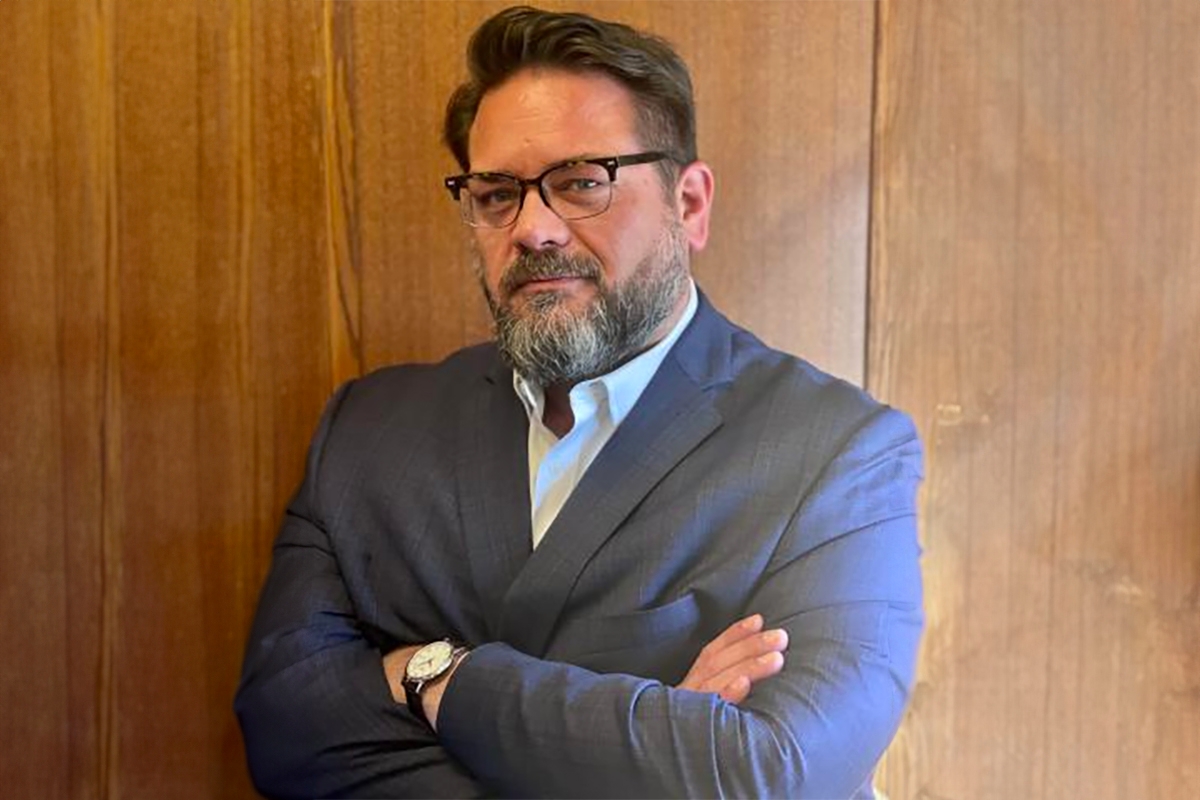
David McLeod leads a committee providing tools and resources to 25,000+ children in Oklahoma whose parents are in prison.
NORMAN, OKLA. – Oklahoma has the highest incarceration rate per capita of anywhere in the developed world, according to David McLeod, interim director of the Anne and Henry Zarrow School of Social Work at the University of Oklahoma and the chair of the Oklahoma Children of Incarcerated Parents Legislative Advisory Committee. Working alongside state and federal organizations, the committee is helping children of incarcerated parents and improving the lives of thousands of families.
“On any given day in Oklahoma there are 25,000 to 30,000 children who have an incarcerated parent,” McLeod said. “Unfortunately, our state only provides funding to help about 100 kids each day with programming that is evidence-based and helpful. We’re thankful for every dollar Oklahoma provides, but it’s simply not enough.”
As a former police detective turned forensic social worker, McLeod understands the implications of intergenerational incarceration. He believes that the strategies currently used in Oklahoma fall short of effectively addressing the challenges faced by children of incarcerated parents
“The trauma that children endure by having an incarcerated parent, particularly an incarcerated mother, is astronomical,” he said. "Some studies show that children of an incarcerated parent are 70% more likely than their peers to become incarcerated themselves. We know these kids are the most at-risk so we should be able to do something to support them before they become a statistic.”
To assist these children and their caregivers, the Oklahoma Commission on Children and Youth has developed a toolkit (pdf) for children of incarcerated parents, their caregivers and other community members who wish help improve the lives of Oklahoma’s children. McLeod’s committee updates this toolkit annually to ensure children have access to the most up-to-date resources.
The toolkit includes over 30 pages of resources, from basic tips for caregivers and questions children might ask when a family member goes to prison to government programs and agencies, mentoring and youth organizations and links to national organizations for support.
The University of Oklahoma plays a pivotal role in this committee’s success. McLeod’s predecessor as chair of the committee was Susan Sharp, a David Ross Boyd Professor and Presidential Professor Emerita in the School of Sociology. Under her leadership, the committee established a reputation for evidence-based guidance, publishing several papers and creating connections with local nonprofits. McLeod has continued and expanded this tradition of collaboration and expert guidance.
“My goal has been to carry on Dr. Sharp’s legacy and help ensure that we root our conversation and decisions in solid, empirical, evidence-based thinking,” he said. “We involve graduate students, especially those in the Zarrow School, to help us develop the report we give to Oklahoma legislators. We also offer a dissertation scholarship to students who can contribute to our knowledge base on the experiences of children and families experiencing the carceral system.”
McLeod regularly invites members of the community to participate in the committee’s efforts. Norman police officers, local representatives, OU professors and members of statewide nonprofits frequently contribute to their efforts.
“I'm especially proud of Xavier Graves, a social work masters’ student at OU and the director of the Restorative Justice Institute of Oklahoma. His experiences with restorative practices, trainings and community involvement are invaluable to this committee,” McLeod said.
The Restorative Justice Institute of Oklahoma seeks to disrupt the cycles of anxiety and violence that impact Oklahomans by focusing on the healing component of these injustices.
“Dr. McLeod is great at connecting passionate people seeking to disrupt the cycles that create problems for these communities,” Graves said. “Trauma, homelessness, incarceration - these issues are not siloed and can’t be solved in silos. To address these, we need to get to the root of the problem, especially those facing Oklahoma’s children.”
The statute that established the Oklahoma Children of Incarcerated Parents Legislative Advisory Committee has officially sunset. However, McLeod plans to keep pressing forward and supporting Oklahoma’s children and incarcerated parents. One way they’re continuing to make a difference is by supporting the Girl Scouts, the Oklahoma Messages Project, New Hope, and other nonprofits.
“The Girl Scouts run a program called Girl Scouts Beyond Bars that helps incarcerated parents reconnect with their daughters. It’s really powerful,” McLeod said. “The Oklahoma Messages Project goes into prisons and teaches parents how to read to their children. They then give the book and a video of the parent reading to the child to their caregiver so that the child can read along with their parents. In Tulsa, New Hope provides trauma-informed services, free of charge, to children impacted by parental incarceration.”
McLeod's research indicates these programs benefit young people by improving educational and behavioral outcomes, reducing anxiety and depression, and providing lifelong opportunities by helping these youth find resolution to their experiences and the support they so desperately need.
The committee aims to sustain and enhance support for Oklahoma's children with incarcerated parents over the coming years by maintaining and expanding partnerships with local police and sheriff's departments, DHS and Child Welfare departments, and initiatives like Head Start.
“The power in this committee comes from the folks that just keep showing up and championing the cause. It's very much a living, breathing organism,” he said. "Anyone with an interest in serving these youth and the people that take care of them, please join us. We'll find a place for you.”
Learn more about the Oklahoma Children of Incarcerated Parents Legislative Advisory Committee or the Oklahoma Commission on Children and Youth.
About the University of Oklahoma
Founded in 1890, the University of Oklahoma is a public research university located in Norman, Oklahoma. As the state’s flagship university, OU serves the educational, cultural, economic and health care needs of the state, region and nation. OU was named the state’s highest-ranking university in U.S. News & World Report’s most recent Best Colleges list. For more information about the university, visit ou.edu.